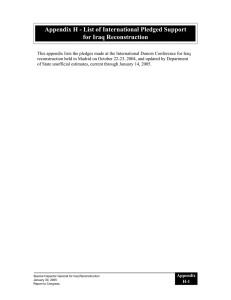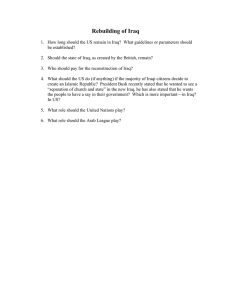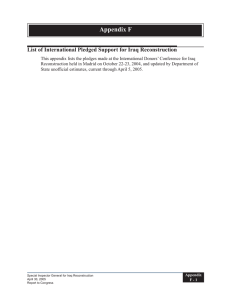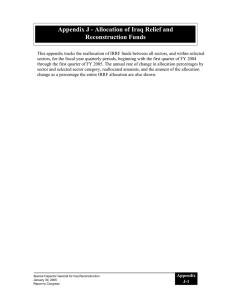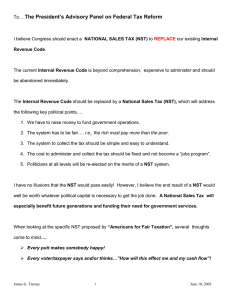MY NOTEBOOK: Show us the money, cry aid recipients
advertisement
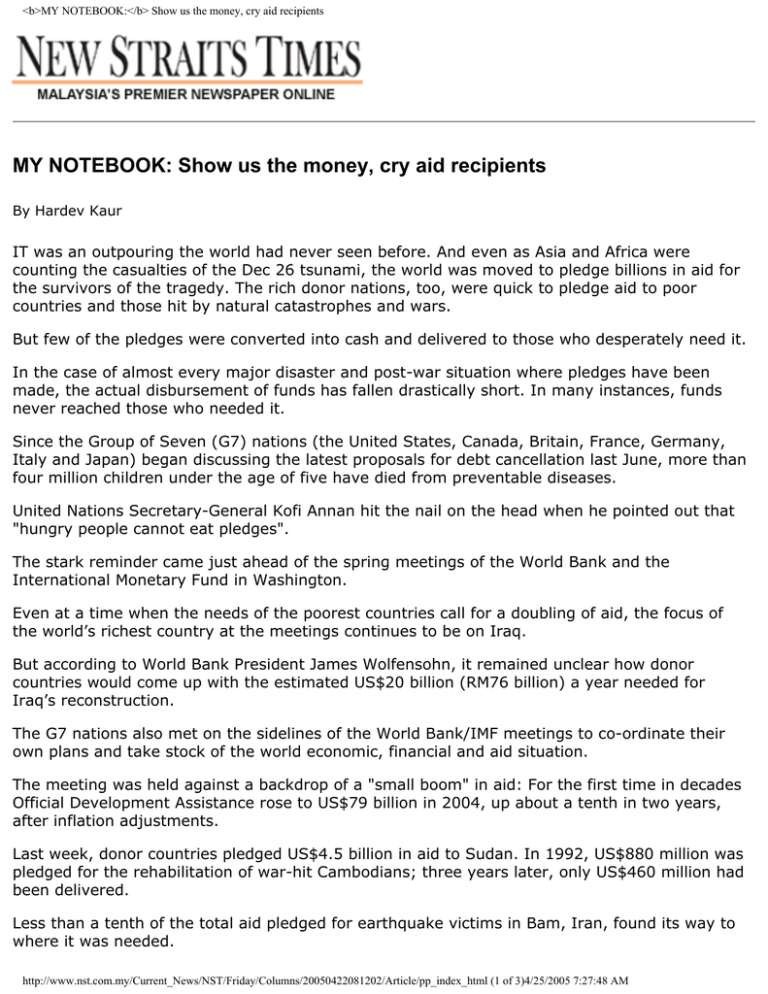
<b>MY NOTEBOOK:</b> Show us the money, cry aid recipients MY NOTEBOOK: Show us the money, cry aid recipients By Hardev Kaur IT was an outpouring the world had never seen before. And even as Asia and Africa were counting the casualties of the Dec 26 tsunami, the world was moved to pledge billions in aid for the survivors of the tragedy. The rich donor nations, too, were quick to pledge aid to poor countries and those hit by natural catastrophes and wars. But few of the pledges were converted into cash and delivered to those who desperately need it. In the case of almost every major disaster and post-war situation where pledges have been made, the actual disbursement of funds has fallen drastically short. In many instances, funds never reached those who needed it. Since the Group of Seven (G7) nations (the United States, Canada, Britain, France, Germany, Italy and Japan) began discussing the latest proposals for debt cancellation last June, more than four million children under the age of five have died from preventable diseases. United Nations Secretary-General Kofi Annan hit the nail on the head when he pointed out that "hungry people cannot eat pledges". The stark reminder came just ahead of the spring meetings of the World Bank and the International Monetary Fund in Washington. Even at a time when the needs of the poorest countries call for a doubling of aid, the focus of the world’s richest country at the meetings continues to be on Iraq. But according to World Bank President James Wolfensohn, it remained unclear how donor countries would come up with the estimated US$20 billion (RM76 billion) a year needed for Iraq’s reconstruction. The G7 nations also met on the sidelines of the World Bank/IMF meetings to co-ordinate their own plans and take stock of the world economic, financial and aid situation. The meeting was held against a backdrop of a "small boom" in aid: For the first time in decades Official Development Assistance rose to US$79 billion in 2004, up about a tenth in two years, after inflation adjustments. Last week, donor countries pledged US$4.5 billion in aid to Sudan. In 1992, US$880 million was pledged for the rehabilitation of war-hit Cambodians; three years later, only US$460 million had been delivered. Less than a tenth of the total aid pledged for earthquake victims in Bam, Iran, found its way to where it was needed. http://www.nst.com.my/Current_News/NST/Friday/Columns/20050422081202/Article/pp_index_html (1 of 3)4/25/2005 7:27:48 AM <b>MY NOTEBOOK:</b> Show us the money, cry aid recipients Statistics released two weeks ago show that aid from rich countries has started to increase but much of this increase was diverted to the reconstruction of Afghanistan and Iraq. The World Bank and IMF meetings over the weekend ended with fresh promises to participate in the reconstruction of Iraq – a clear reflection of the foreign policy interests of the major powers and donor nations. With Paul Wolfowitz, the hawk and the main architect of the Iraq invasion, set to take over from Wolfensohn on June 1, should the world now be resigned to a change in focus of development aid from the multinational institution? Iraq and its reconstruction needs, estimated at US$100 billion or more, was said to be a source of tension at the weekend meetings. Although the basic mission of the World Bank and the IMF is to help nations in distress, some members appeared to resent the Bush administration’s sudden interest in soliciting post-war aid. Last year, the US gave as much assistance to Iraq, with a population of 25 million, as it did to the whole of Africa, with a population of about 700 million. According to Steven Radelet, senior fellow at the Centre for Global Development in Washington, US aid to Africa totalled less than US $5 per African, "about the same as what many Americans spend each morning for coffee and a bran muffin". Britain, the chair of the G7, has called for the doubling of aid flows to poor countries to US$100 billion a year. British Chancellor of the Exchequer Gordon Brown raised hopes that there could be a "deal" on debt relief, adding that the next G7 meeting would go down in history as "the 100 per cent debt relief summit". But, not so fast. Wolfensohn warned there would be no extra aid or debt relief until July at the earliest, when the G7 leaders gather in Scotland. The world’s richest country, the US, has not joined the chorus on this. And reports suggest that American officials are complaining that they do not get credit for the aid increases the US administration has put in place. Among others they point to the AIDS and Millennium Challenge Account, slated to provide a US $110 million package for Madagascar. But there is still a massive shortfall from the 0.7 per cent of gross domestic product pledged by rich nations decades ago. A number of countries, including Britain, France and Germany, have set out timetables to increase their aid to the poor, but the US has refused to commit itself to such targets. Then again the focus on reconstruction of Iraq may drain the aid pool and the world could be in danger of losing the "other war"— on global poverty, disease and illiteracy in Africa. If the current trend continues, the number of people in Africa surviving on less than US$1 is expected to rise to 404 million in 12 years and to eight million in the Middle East. The number of people living in extreme poverty in Africa has already doubled since 1981. Sub-Saharan Africa may not meet any of the Millennium Development goals by 2015. http://www.nst.com.my/Current_News/NST/Friday/Columns/20050422081202/Article/pp_index_html (2 of 3)4/25/2005 7:27:48 AM <b>MY NOTEBOOK:</b> Show us the money, cry aid recipients Then there are concerns that aid would be wasted. But this is not so. "Aid has never been more productive than it is now," World Bank chief economist Nicholas Stern said. "At the same time, aid as a fraction of (the GDP) of rich countries has never been lower than it is now in the last half-century or so. That is a paradox that is troubling." © Copyright 2004 The New Straits Times Press (M) Berhad. All rights reserved. http://www.nst.com.my/Current_News/NST/Friday/Columns/20050422081202/Article/pp_index_html (3 of 3)4/25/2005 7:27:48 AM
